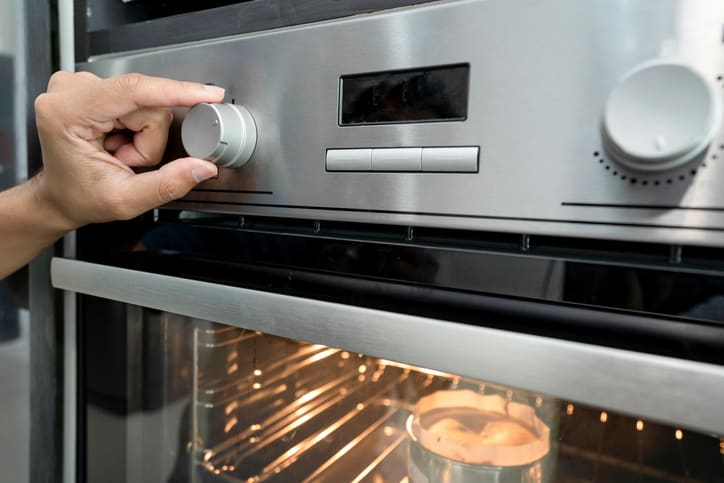The crisis was real. My wife had tried to bake bread and left it in the oven for the right amount of time at the right temperature. But the results were poor. It wasn’t fully baked. There were other issues as well. Certain foods were undercooked and needed to be reinserted for a longer period.
“I don’t understand what’s happening,” said my wife. “I think the oven is broken.”
“I don’t know honey,” I said. “Are you sure there’s a problem with it?”
“Yes I’m sure”, she said. “We need to call a repairman – we might need a new oven.”
“Ok, we’ll call a repairman. I wonder if there are any ideas online,” I said.
Later that day, my wife went online. The first thing that she saw was a suggestion to buy an oven thermometer to test if, indeed, there was something off with the temperature in the oven.
On my way home, I bought a five dollar oven thermometer from Walmart and we eagerly tried it out last Friday afternoon. To our great shock, when the oven was set for 400°, the oven thermometer only registered 375.
“Eureka!” I cried. “You were right!” (She usually is – don’t tell her I said that.)
I rushed to YouTube to see if this problem has come up before. I immediately found some guy in Texas who was explaining that it’s an easy fix. Apparently, every oven is built with the expectation that the calibration of the temperature could be off plus or minus some variable over the years.
We grabbed the manual for our oven and within three minutes I was able to dial in an additional 25° necessary to recalibrate the oven. We tested it and within twenty minutes, we were gratified to see that the oven which was set for 400° was actually registering exactly at 400° on our newly purchased oven thermometer.
There was great joy in the city of Baltimore, and that Friday night our Shabbos meal was crisp to perfection.
I started to think about the story and how we could apply it to our daily lives. We sometimes think that we’re operating at a certain temperature, at a certain warmth in our Judaism. We feel warm feelings to our creator and to our fellow man. But are those feelings truly legitimate? Are we really operating at the temperature that we think we are operating at?
Or, have we been lulled into thinking we’re operating at 400° of warmth in our relationships and our service to God, but in fact we are running a lot colder than we think?
Thankfully, we have in our calendar the month of Elul and the Rosh Hashanah-Yom Kippur period. We have Selichot prayers. We get to reevaluate our lives, and see if we need to recalibrate.
Am I doing everything with forethought or am I just doing them as rote? Are my relationships within my own family genuine and sincere? Or are they forced and without the proper feeling and emotion? Is my davening as good as it should be, or am I just going through the motions?
Am I recognizing God in my life to the extent that I should?
The prayers this time of year are designed to sensitize us to all of our relationships as subjects of God, members of His holy nation, and bearers of a divinely endowed soul.
Let’s see if we need to turn up the heat.
Shlomo Horwitz is the founding director of Jewish Crossroads, an educational theater project that has provided creative Torah programming across the US, Canada, England and Israel. He studied at Yeshivat Shaalvim and Yeshivat Ner Yisrael in Baltimore, where he received ordination from Rabbi Yaakov Weinberg. Shlomo is a CPA and a director of a consulting firm near Washington, DC. He can be reached through his site, www.jewishcrossroads.com.
The words of this author reflect his/her own opinions and do not necessarily represent the official position of the Orthodox Union.

